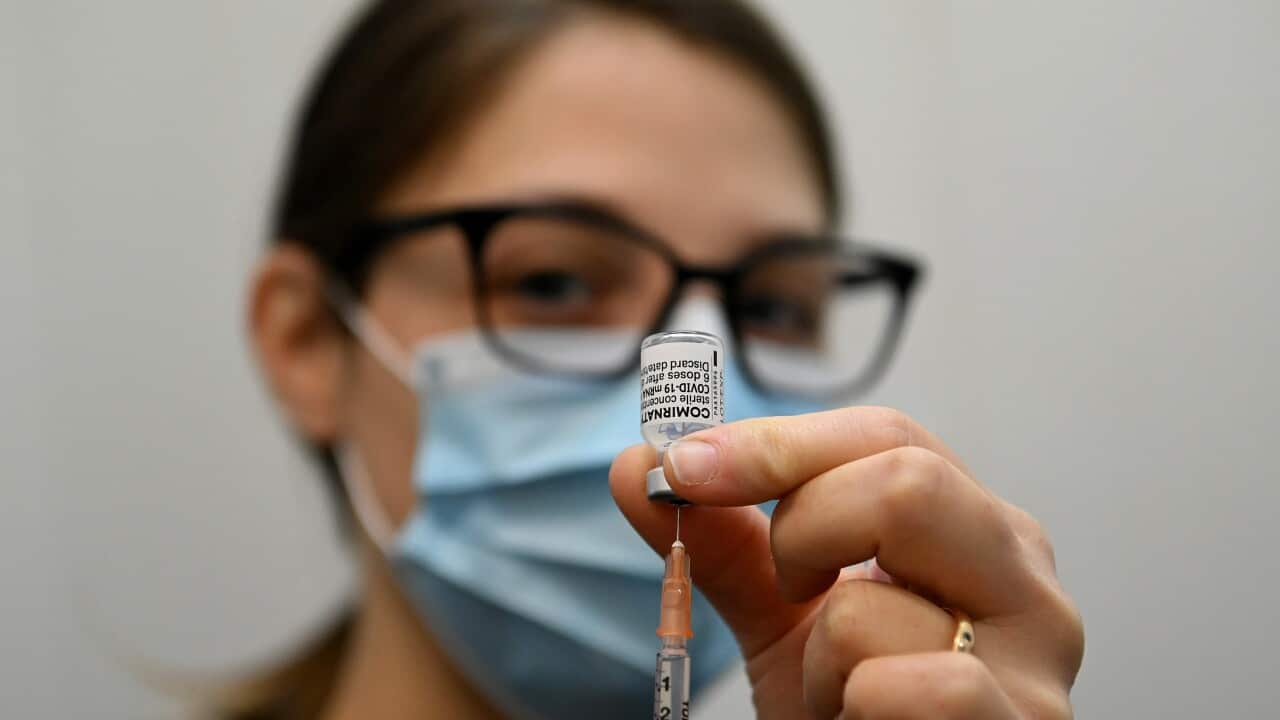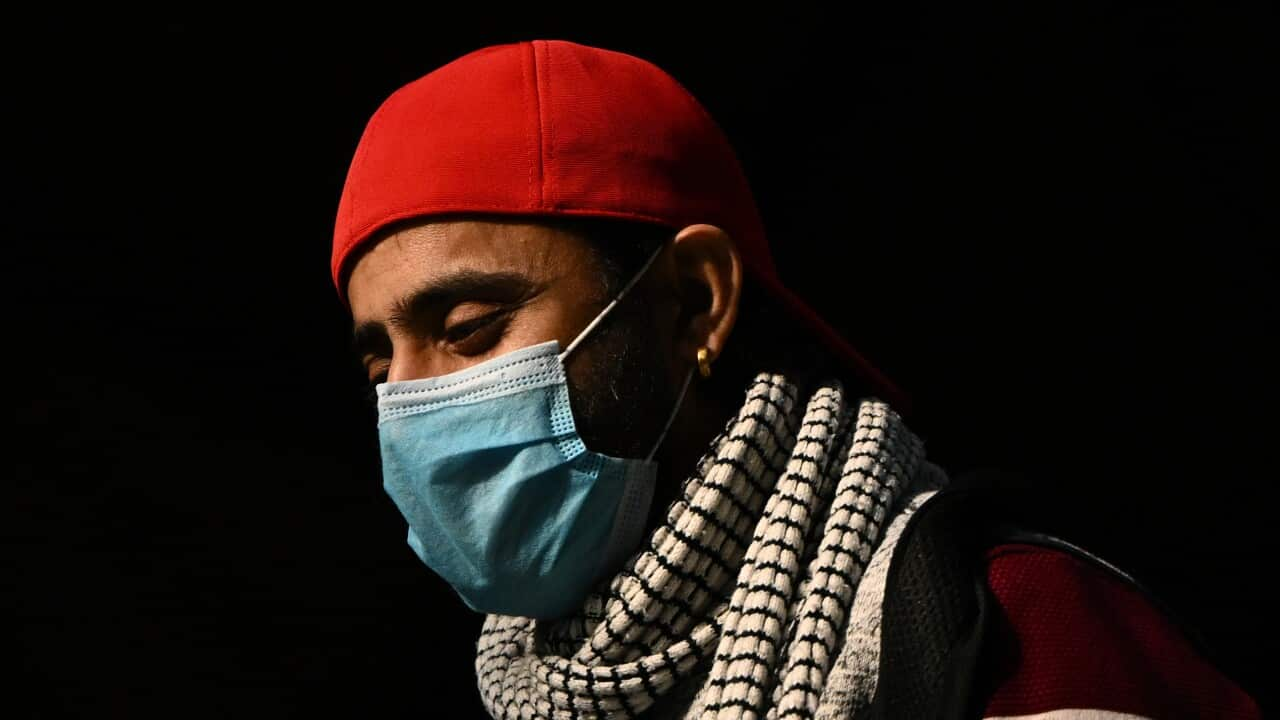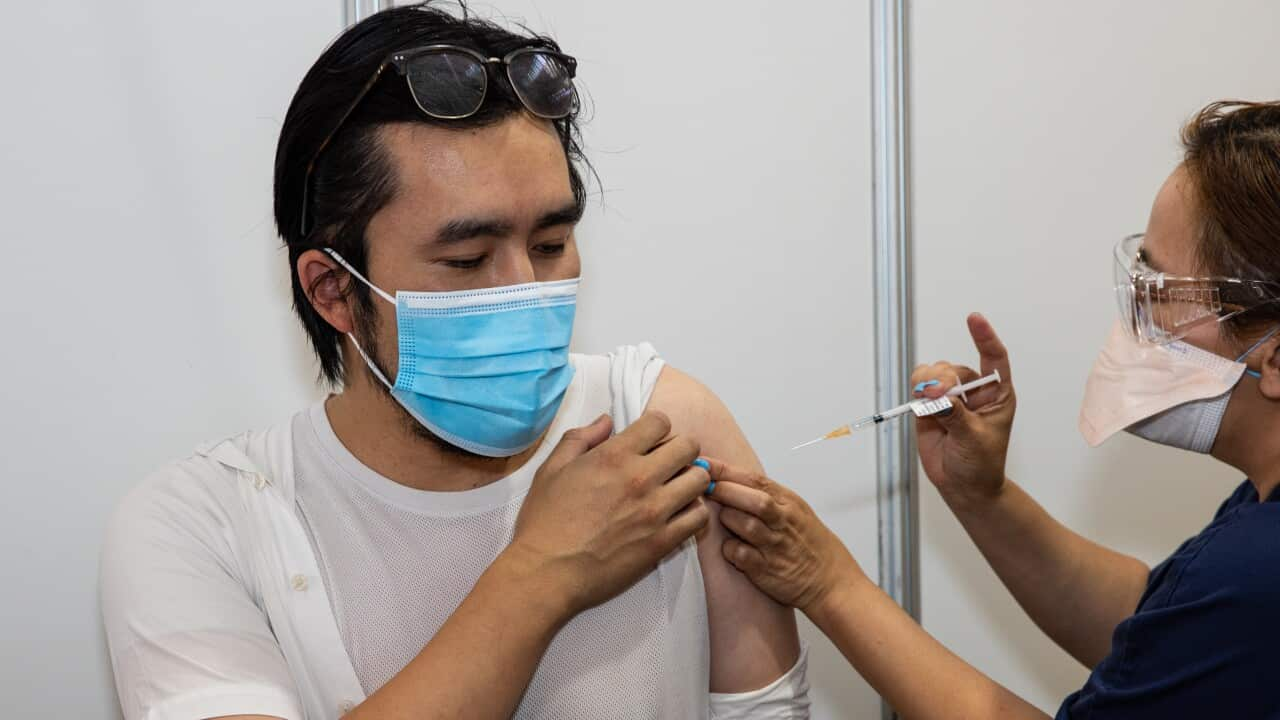Key points
- The AstraZeneca, Novavax, Pfizer, and Moderna vaccines are currently part of Australia's COVID-19 vaccination program.
- The virus has evolved, with Omicron BA.5 now the dominant variant circulating in Australia.
The world is almost three years into the COVID-19 pandemic, and the battle against it appears far from over.
As Australia battles a fourth COVID-19 wave, new variants and subvariants continue to emerge as the coronavirus rapidly evolves.
So, what does this mean for those who are due to roll up their sleeve for another vaccine dose?
COVID-19 vaccines: What's available in Australia and who can get them?
The AstraZeneca, Novavax, Pfizer, and Moderna vaccines are currently part of Australia's COVID-19 vaccination program.
Most of the available jabs were designed for the original variant of the virus that causes COVID-19, but and that target Omicron BA.1 were given the green light to join the rollout as booster doses for people aged 18 and over in recent times.
In the wake of this, the Therapeutic Goods Administration, has granted a provisional determination — an early step in the vaccine approval process — to bivalent vaccines from Moderna and Pfizer that cover this variant.
The Department of Health recommends that everyone aged five and over get a COVID-19 vaccine. In most cases, a primary course is two doses administered eight weeks apart.
It advises those aged 16 or older should get a third dose, as well as five to 15-year-olds who are immunocompromised or have disability.
Fourth doses are recommended for people aged 50 and above, or at-risk individuals who are aged 16 or older. Those aged 30 to 49 years can access a second booster dose if they choose.
Fifth doses are limited to those who are severely immunocompromised.
The Department recommends deferring your next dose for three months if you fall ill with COVID-19.
When it comes to COVID-19 vaccines, should I be picky?
It's a resounding "no" from health experts, who say you should get whatever vaccine is recommended for you — even if it doesn't cover the latest variants.
"The virus has mutated to allow it avoid some parts of the vaccination protection... and that's because we have Omicron and most people have been vaccinated for the original strain," said Griffith University infectious diseases experts Professor Nigel McMillan.
"Nevertheless, getting vaccinated decreases your chances of serious illness, hospitalisation, and death. And it reduces your changes of getting long COVID."
Long COVID is including extreme fatigue, which usually arise three months from the onset, with symptoms lasting at least two months.
Up to 500,000 people in Australia could experience the condition, with 110,000 of them suffering "significant impact", .
The Department of Health told SBS News there is currently "adequate supply" of Moderna's bivalent vaccine "to ensure all eligible Australians can receive their booster dose."
It said 15 million Moderna — including bivalent — vaccines doses arrive before the end of this year.
Pfizer's BA.1-specific vaccine is set to join the rollout in December, with 4.7 million doses expected to arrive before the end of November.
"I think the basic message is to get a vaccine in a timely manner. Though if we're comparing original vaccines to one of the updates ones, I would certainly try and get an updated one if there's not a significant delay," said Paul Griffin, an infectious diseases physician and microbiologist at the University of Queensland.
The virus keeps evolving. What will that mean for vaccines?
BQ.1 is a sublineage of the Omicron variant BA.5, while XBB is a hybrid variant meaning it came to be after two Omicron lineages swapped parts of their genetic material — in this case BA.2.10.1 and BA2.75.
Updating COVID-19 vaccines to target new variants is currently a suitable response, but it won't work forever given how quickly new subvariants are emerging, according to Professor Griffin.
"For a long-term strategy, we need improved vaccines that are less likely to have their protection compromised by new [virus] sub-variants... it's a very difficult challenge to overcome in terms of how to it successfully, but there are some promising approaches," he said.
Professor McMillan agrees. He said a "universal vaccines that doesn't care about variants" is key to winning the battle against COVID-19.
But it might not be an easy task.
"We have tried to develop a universal flu vaccine for 30 years and we have not succeeded. But we have better hopes on developing one for COVID-19," he said.
"It's not a virus that has the flu virus' tricks."












